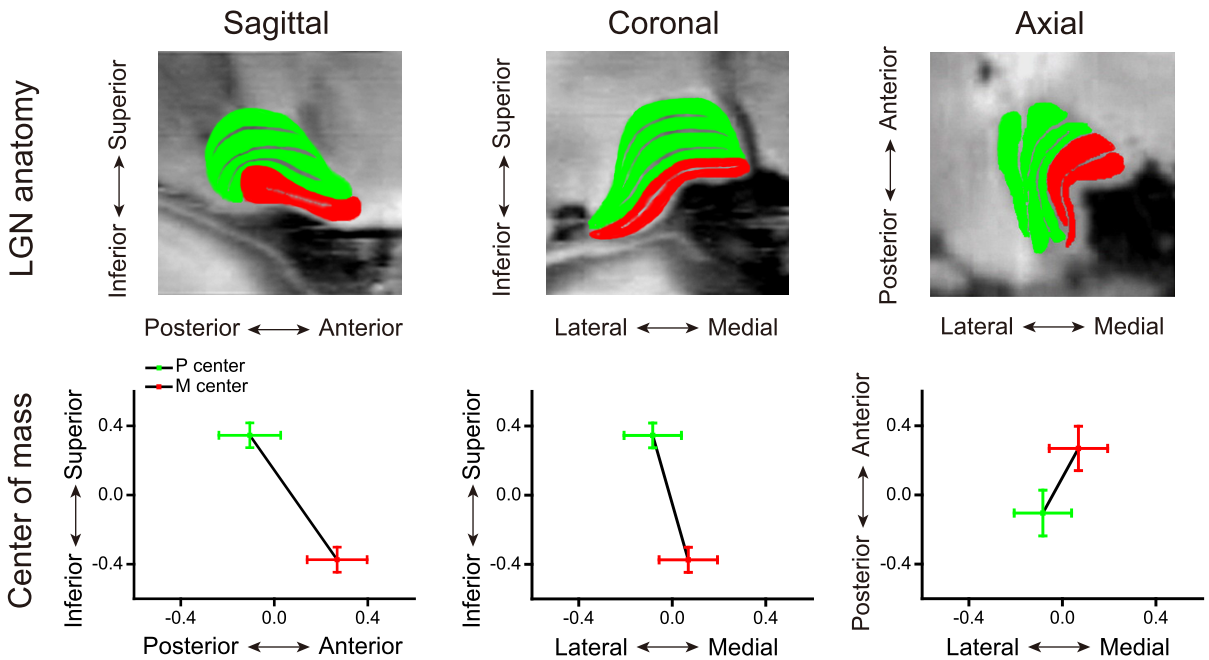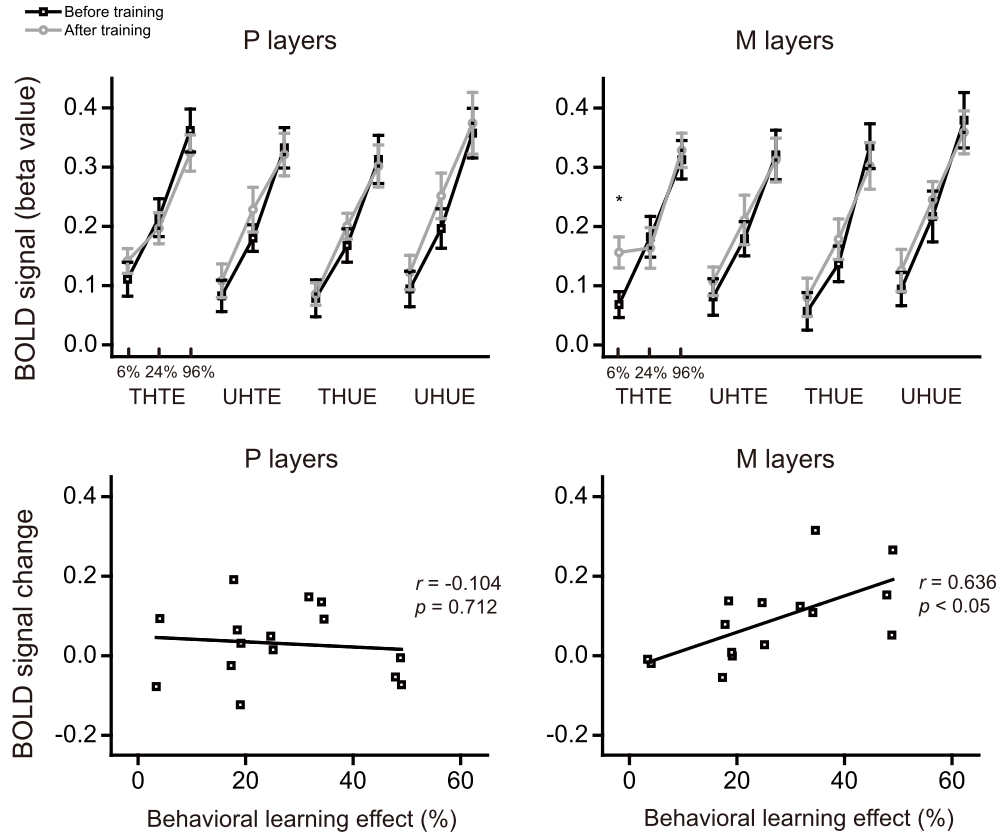Fang Fang and Qinlin Yu at the PKU-IDG/McGovern Institute for Brain Research, Department of Psychology and Center for Life Sciences at Peking University have recently published a paper on Current Biology titled ‘Perceptual learning of contrast detection in the human lateral geniculate nucleus’ with their collaborators. They prove that perceptual learning in human adults might not be confined to the cortical level as previous believed, but occur as early as at the thalamic level.
The brain is continuously modified by perceptual experience throughout life. Perceptual learning, which refers to the long-term performance improvement resulting from practice, has been widely used as a paradigm to study experience-dependent brain plasticity in adults. In the visual system, adult plasticity is largely believed to be restricted to the cortex, with subcortical structures losing their capacity for change after a critical period of development. Although various cortical mechanisms have been shown to mediate visual perceptual learning, there has been no reported investigation of perceptual learning in subcortical nuclei.
In their Current Biology paper, human subjects were trained on a contrast detection task for thirty days, leading to a significant contrast sensitivity improvement that was specific to the trained eye and the trained visual hemifield. Training also resulted in an eye- and hemifield-specific fMRI signal increase to low contrast patterns in the magnocellular layers of the LGN even when subjects did not pay attention to the patterns.

Such an increase was absent in the parvocellular layers of the LGN and visual cortical areas. Furthermore, the behavioral benefit significantly correlated with the neural enhancement.

These findings suggest that LGN signals can be amplified by training to detect faint patterns. Neural plasticity induced by perceptual learning in human adults might not be confined to the cortical level, but occur as early as at the thalamic level.
The study was supported by Ministry of Education, NSFC, PKU-IDG/ McGovern Institute for Brain Research and the Peking-Tsinghua Center for Life Sciences.